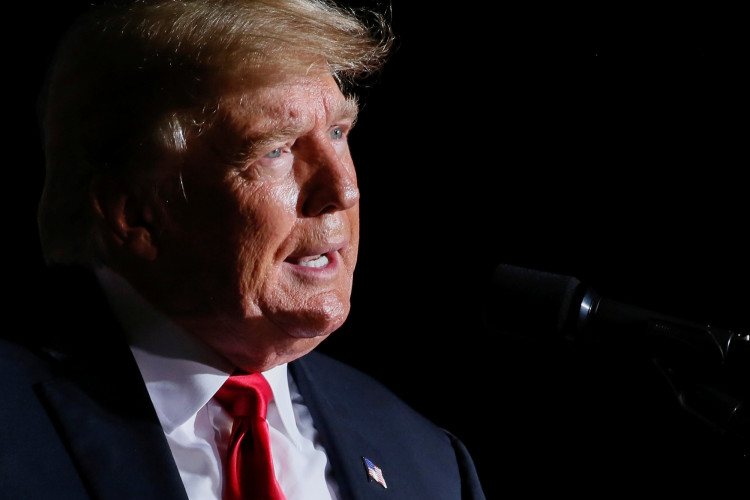As the legal proceedings against former President Donald Trump unfold in a Manhattan federal court, the trial's gravitas has been unexpectedly overshadowed by a series of courtroom sketches that have sparked widespread mockery on social media platforms. The sketches, crafted by artist Christine Cornell, capture Trump in a manner that some observers have likened to animated characters, setting the stage for a flurry of online commentary.
Following Trump's brief testimony, which was marked by a stern rebuke from U.S. District Judge Lewis Kaplan for his continued denial of E. Jean Carroll's accusations, Cornell's drawings quickly became a focal point for public discourse. Portraying Trump with pronounced facial features and an almost theatrical expression, the sketches elicited reactions ranging from amusement to disbelief across social media.
One user quipped, "Trump looks like the Lion from the Wizard of Oz," drawing parallels between the former president's depicted demeanor and the beloved movie character.
Another user likened Trump to Dr. Seuss's fictional creation, commenting, "He's giving The Grinch vibes," while a third humorously observed that the illustrations were "giving Paw Patrol vibes."
this sketch artist despises Trump. pic.twitter.com/VONY2op3MM — Jodie (@JodiePP1948) January 26, 2024
The playful nature of the commentary extended to comparisons with the musical theater world, with one social media user jestically inquiring, "Did he go straight from court to perform in Cats?" referring to Andrew Lloyd Webber's renowned musical. This jest underscores the extent to which Cornell's artistic interpretation has captivated the online audience, transforming the courtroom drama into a subject of lighthearted debate.
Amidst the jests, some of Trump's ardent supporters have come to his defense, challenging the artist's portrayal as biased and unflattering.
One defender asserted, "Christine Cornell must be prejudiced against President Trump!" suggesting that the sketches were intentionally distorted. Another supporter raised questions about the artist's approach, asking, "What is the point in intentionally distorting him like some novelty caricature artist on the boardwalk?" These comments reflect the polarized views surrounding Trump's figure, even in the context of courtroom sketches.
The online reaction to the sketches highlights the intersection of art, politics, and public perception in the digital age. As the defamation trial against Trump continues, with Carroll's legal team seeking substantial damages for the alleged sexual abuse and defamation, the sketches serve as a reminder of the trial's broader cultural and social implications.
Beyond the legal arguments and potential verdicts, the trial has evolved into a spectacle that captures the public's imagination, with every detail-including the artistic renderings of those present-subject to scrutiny and interpretation by a captivated audience.
In this confluence of legal drama, artistic expression, and social media commentary, the defamation trial against Donald Trump over E. Jean Carroll's claims has transcended its judicial confines, becoming a viral sensation that underscores the enduring influence of public figures on the cultural zeitgeist.






